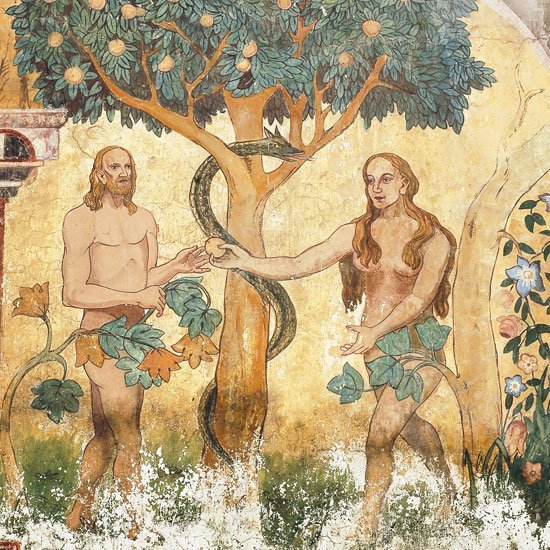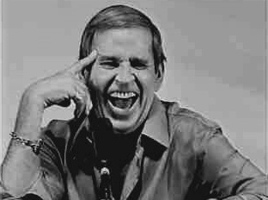|
home | what's new | other sites | contact | about |
|||||||
|
Word Gems exploring self-realization, sacred personhood, and full humanity
Sin
“I find something repulsive about the idea of vicarious redemption. I would not throw my numberless sins onto a scapegoat and expect them to pass from me; we rightly sneer at the barbaric societies that practice this unpleasantness in its literal form. There's no moral value in the vicarious gesture anyway. As Thomas Paine pointed out, you may if you wish take on a another man's debt, or even to take his place in prison. That would be self-sacrificing. But you may not assume his actual crimes as if they were your own; for one thing you did not commit them and might have died rather than do so; for another this impossible action would rob him of individual responsibility. So the whole apparatus of absolution and forgiveness strikes me as positively immoral, while the concept of revealed truth degrades the concept of free intelligence by purportedly relieving us of the hard task of working out the ethical principles for ourselves.” Christopher Hitchens, Letters to a Young Contrarian
Susana Wesley: "Whatever weakens your reason, impairs the tenderness of your conscience, obscures your sense of God, takes off your relish for spiritual things, whatever increases the authority of the body over the mind, that thing is sin to you, however innocent it may seem in itself." Lilian Whiting, “The World Beautiful”: “The one supreme purpose of the soul's sojourn in this world is to develop its spiritual powers in this complex plane of manifestation. Whatever circumstances and conditions conduce to this end are fortunate circumstances and conditions, no matter how difficult or how uncomfortable they are. Whatever circumstances hinder this development are unfortunate ones, no matter how alluring to the senses.” Lilian Whiting: “Phillips Brooks was once asked how certain things, seeming innocent enough, not to say quite negligible, in and of themselves could be wrong? The reply of Bishop Brooks was to the effect that if things, not wrong in themselves yet kept us from better things, to that extent, then, we must class them as wrong.”
Author Unknown: “I know what goes through the mind of a good man, what must go through the mind of a scoundrel.” Editor’s note: I still recall, during my first days at university a long time ago, discovering this quotation, and the impact it had on me; the source escapes me now. However, I noted a similar saying in Durants’ Lessons Of History: Joseph de Maistre: “I do not know what the heart of a rascal may be; I know what is in the heart of an honest man; it is horrible.”
Oscar Wilde, The Picture of Dorian Gray: “You will always be fond of me. I represent to you all the sins you never had the courage to commit.” John Green: “Some tourists think Amsterdam is a city of sin, but in truth it is a city of freedom. And in freedom, most people find sin.” Harper Lee, To Kill a Mockingbird: “Mockingbirds don’t do one thing but make music for us to enjoy. They don’t eat up people’s gardens, don’t nest in corncribs, they don’t do one thing but sing their hearts out for us. That’s why it’s a sin to kill a mockingbird.”
Fyodor Dostoyevsky, The Brothers Karamazov: “The man who lies to himself and listens to his own lie comes to such a pass that he cannot distinguish the truth within him, or around him, and so loses all respect for himself and for others. And having no respect he ceases to love, and in order to occupy and distract himself without love he gives way to passions and coarse pleasures, and sinks to bestiality in his vices, all from continual lying to other men and to himself.” Samuel Beckett: “The only sin is the sin of being born.” Peter Kreeft, Jesus-Shock: “We sinned for no reason but an incomprehensible lack of love, and He saved us for no reason but an incomprehensible excess of love.” Gloria Steinem, The Vagina Monologues: “No wonder male religious leaders so often say that humans were born in sin—because we were born to female creatures. Only by obeying the rules of the patriarchy can we be reborn through men. No wonder priests and ministers in skirts sprinkle imitation birth fluid over our heads, give us new names, and promise rebirth into everlasting life.” Christopher Hitchens, Letters to a Young Contrarian: “I find something repulsive about the idea of vicarious redemption. I would not throw my numberless sins onto a scapegoat and expect them to pass from me; we rightly sneer at the barbaric societies that practice this unpleasantness in its literal form. There's no moral value in the vicarious gesture anyway. As Thomas Paine pointed out, you may if you wish take on a another man's debt, or even to take his place in prison. That would be self-sacrificing. But you may not assume his actual crimes as if they were your own; for one thing you did not commit them and might have died rather than do so; for another this impossible action would rob him of individual responsibility. So the whole apparatus of absolution and forgiveness strikes me as positively immoral, while the concept of revealed truth degrades the concept of free intelligence by purportedly relieving us of the hard task of working out the ethical principles for ourselves.”
Francis Chan, Crazy Love: Overwhelmed by a Relentless God: “God is the only being who is good, and the standards are set by Him. Because God hates sin, He has to punish those guilty of sin. Maybe that's not an appealing standard. But to put it bluntly, when you get your own universe, you can make your own standards.” Arthur Conan Doyle, Sherlock Holmes: “It is my belief, Watson, founded upon my experience, that the lowest and vilest alleys in London do not present a more dreadful record of sin than does the smiling and beautiful countryside.” Martin Luther: “The sin underneath all our sins is to trust the lie of the serpent that we cannot trust the love and grace of Christ and must take matters into our own hands.” Bree Despain, The Dark Divine: “You know some religious scholars believe that when faced with overwhelming temptation you should commit a small sin just to relieve the pressure a bit.”
|
|||||||
|
|



